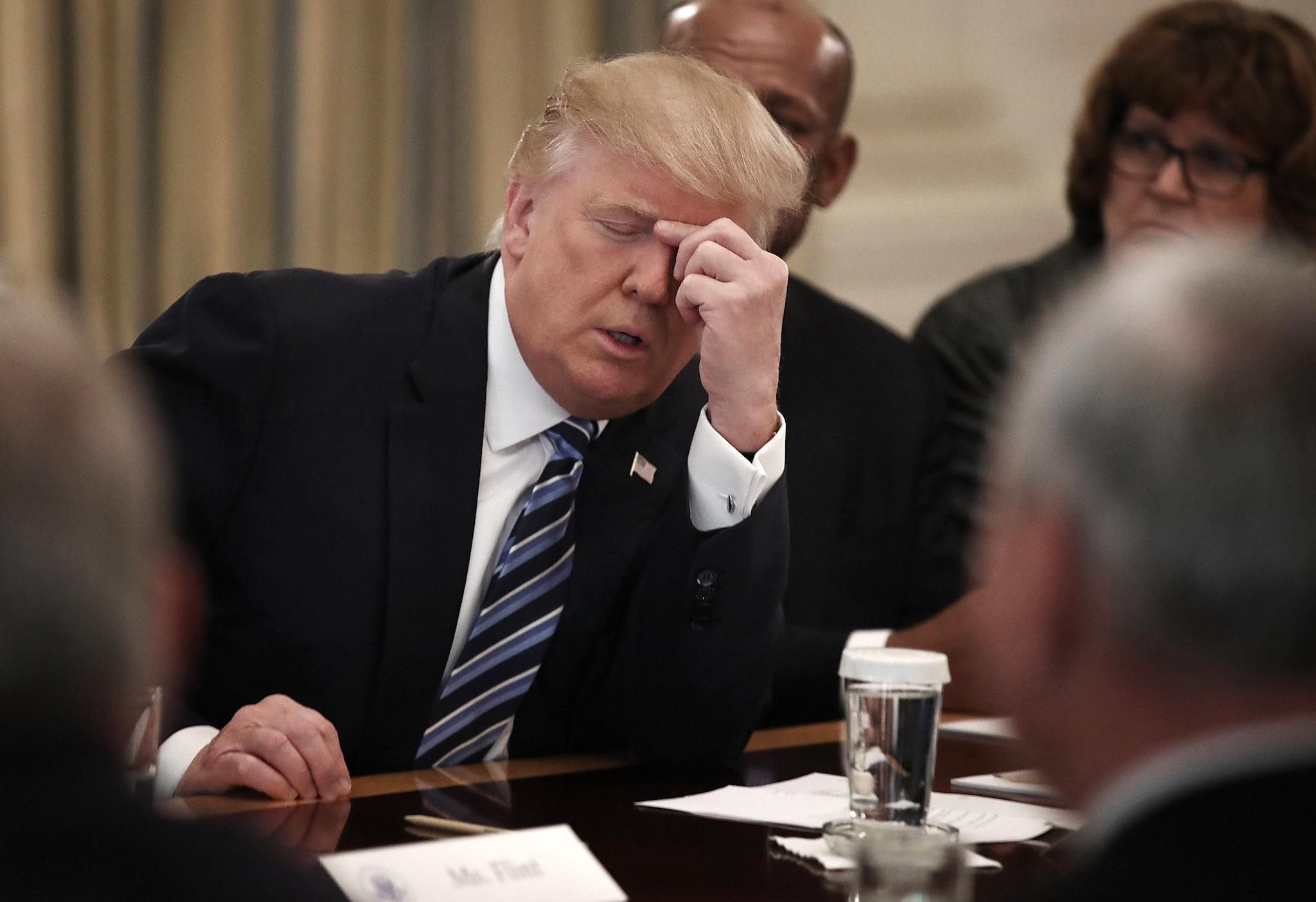Donald Trump's pardoning of Sheriff Joe Arpaio is an impeachable offence, say law professors
'It is a direct attack on the constitutional powers of the judiciary...and threatens the rule of law'

Your support helps us to tell the story
From reproductive rights to climate change to Big Tech, The Independent is on the ground when the story is developing. Whether it's investigating the financials of Elon Musk's pro-Trump PAC or producing our latest documentary, 'The A Word', which shines a light on the American women fighting for reproductive rights, we know how important it is to parse out the facts from the messaging.
At such a critical moment in US history, we need reporters on the ground. Your donation allows us to keep sending journalists to speak to both sides of the story.
The Independent is trusted by Americans across the entire political spectrum. And unlike many other quality news outlets, we choose not to lock Americans out of our reporting and analysis with paywalls. We believe quality journalism should be available to everyone, paid for by those who can afford it.
Your support makes all the difference.Donald Trump’s decision to pardon Joe Arpaio is an impeachable offence because it is a “direct attack” on the judiciary and “threatens the rule of law”, legal experts have said.
The 85-year-old former Arizona sheriff was convicted of ignoring a court order warning him to stop racially profiling Latino immigrants.
Mr Trump was criticised after he provided him with a presidential pardon.
While the US Constitution gives the president the power to pardon whoever they like, legal experts say this case is problematic because it undermines the ability of the courts to stop state officials violating the constitutional rights of individuals.
The issue was raised in a New York Times article by Martin Redish, a professor of constitutional law at Northwestern University.
The legal reasoning rests on the fact that the president pardoning someone found guilty of ignoring a court order undermines the power of the courts and raises the worrying prospect of the executive nullifying the judiciary.
The most effective way for courts to prevent the state violating individual rights is by issuing injunctions. These instruct that the offence or planned offence must stop or else those responsible will face prosecution for ignoring the court order.
Without this threat, the injunction is largely meaningless. However, Donald Trump’s decision to pardon someone who was found guilty of ignoring a court order, raises the prospect that state officials could opt to ignore the courts in the belief the president will pardon them should they be convicted.
Professor Redish wrote: “If the president signals to government agents that there exists the likelihood of a pardon when they violate a judicial injunction that blocks his policies, he can all too easily circumvent the only effective means of enforcing constitutional restrictions on his behaviour. Indeed, the president could even secretly promise a pardon to agents if they undertake illegal activity he desires.
“The power of courts to restrain government officers from depriving citizens of liberty absent judicial process is the only meaningful way courts have to enforce important constitutional protections. But if the president can employ the pardon power to circumvent constitutional protections of liberty, there is very little left of the constitutional checks on presidential power.”
Some legal experts believe Mr Trump’s decision to pardon Arpaio could therefore be grounds for impeachment.
In an article for the Slate website, Professor Frank Bowman of the University of Missouri-Columbia said: “The founders included in the Constitution a congressional power to impeach presidents primarily to respond to misuse by the president of express or implied powers given him elsewhere in the document.
“To the founders, the main point of impeachment was that there must be a remedy when a president perverts the powers of his office, either for personal or political self-aggrandizement or, regardless of motive, when the president’s acts threaten the proper distribution of authority among the coordinate branches or otherwise offend either law or fundamental governing norms.
“The pardon of Arpaio plainly falls within this core conception of properly impeachable offences.”
He said that the decision to pardon Arpaio was a “direct assault on core constitutional rights, statutory civil rights laws of the United States, and the authority of courts to enforce those laws.
He added: “It is a direct attack on the constitutional powers of the judiciary as a coordinate branch of government…[and] threatens to undercut one of the indispensable, foundational norms of American constitutional order: the rule of law,” he said.
In reality, Mr Trump is highly unlikely to be impeached while the Republicans have a majority in Congress.
However, the list of alleged impeachable offences against the billionaire businessman is mounting - raising the prospect that, if proceedings against him do ever begin, he could potentially be removed from office.
Join our commenting forum
Join thought-provoking conversations, follow other Independent readers and see their replies
Comments